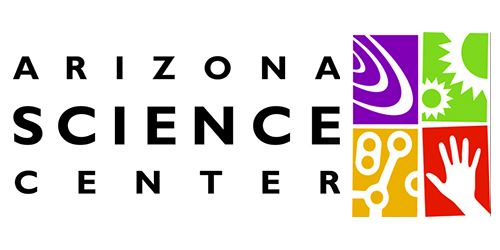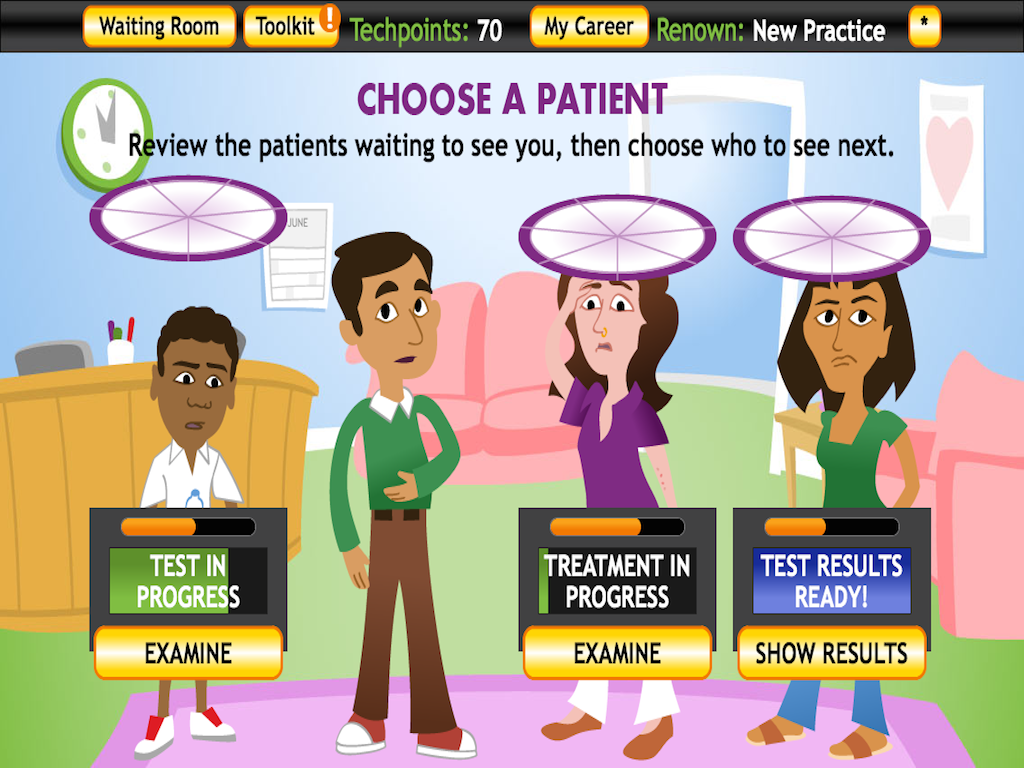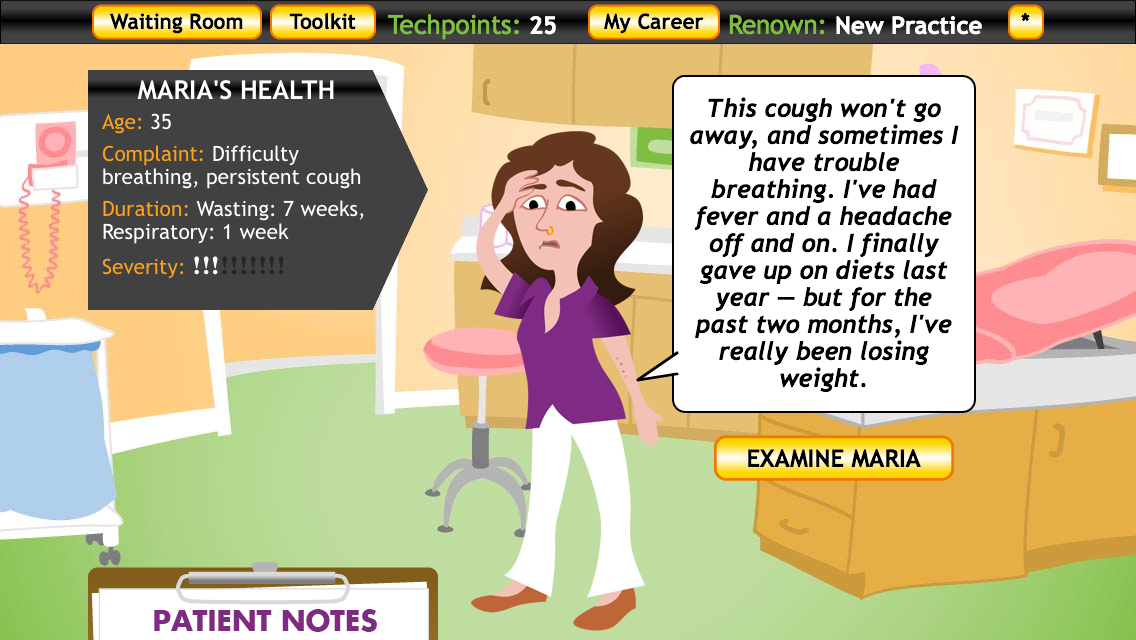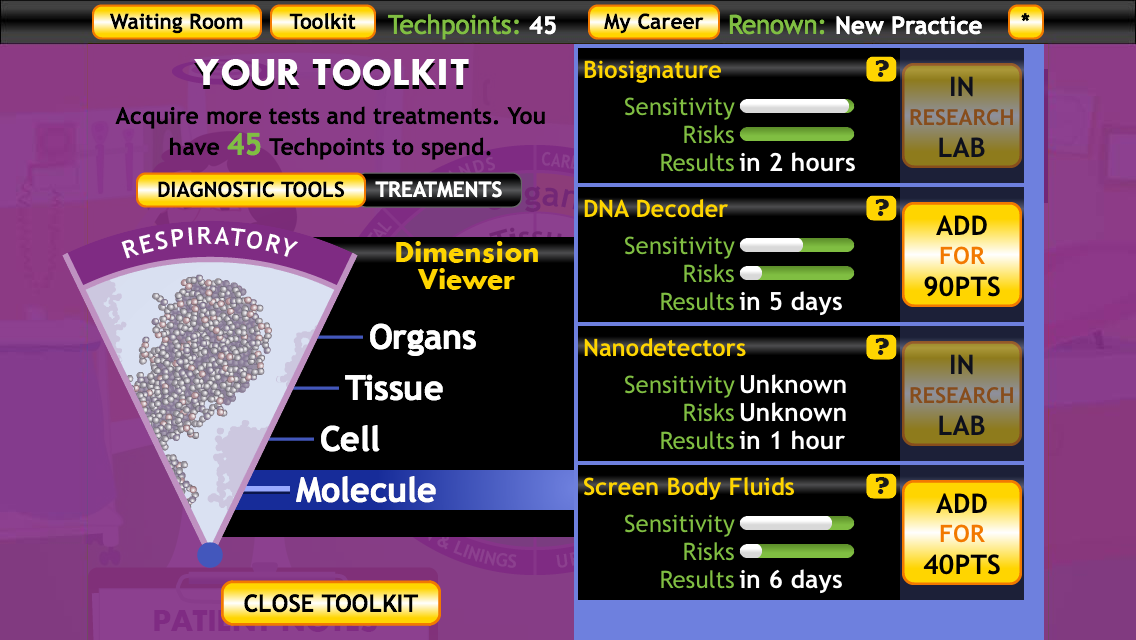 "The game, ‘Doctor Know,’ introduces the general public,
"The game, ‘Doctor Know,’ introduces the general public,  students and teachers to current biomedical research encouraged by the National Institute of Environmental Health Sciences’ (NIH) Roadmap. In addition to basic medical research, it aims to highlight the processes and tools involved in current biomedical research, linking directly to Arizona’s Science Standards. The project was funded by a National Institute of Health SEPA grant." (As quoted from AZ SC’s "Aims of the Project and Results").
students and teachers to current biomedical research encouraged by the National Institute of Environmental Health Sciences’ (NIH) Roadmap. In addition to basic medical research, it aims to highlight the processes and tools involved in current biomedical research, linking directly to Arizona’s Science Standards. The project was funded by a National Institute of Health SEPA grant." (As quoted from AZ SC’s "Aims of the Project and Results").
Doctor Know, the Arizona Science Center’s newest mobile game, opens with a vivid, yet darkly humorous, animation about the history of medical diagnosis and treatment. We watch the painful evolution of a "healers" practice from ancient Greece to Medieval times to modern medicine. It concludes by introducing your mission and the game’s scope of learning: you are a doctor and you will diagnose and treat many patients based on available tools and technology. The player learns about the human body’s interconnectedness in regards to health at multiple scales. From macro (organs and tissue), micro (cells), and nano (molecular), there are multiple levels at which our health can fail and be treated.  Oh yea, if you don’t successfully diagnose and treat a patient, he or she dies! Believe me, the first time a patient died on me, I was shocked yet determined to save the next one…but I’m not a good doctor, and so I had many failures at first.
Oh yea, if you don’t successfully diagnose and treat a patient, he or she dies! Believe me, the first time a patient died on me, I was shocked yet determined to save the next one…but I’m not a good doctor, and so I had many failures at first.
For NISE Net, the game introduces scale and nano-medical technology as a mode for accurate diagnosis and focused treatment. You must earn "TechPoints" by successfully performing a series of check-ups, tests, choosing the correct diagnosis, and by administering treatment. You get the most points for successful treatments. As you earn more TechPoints, you can spend them on more robust and accurate methods of treatment and diagnosis at different scales. The odds of misdiagnosing or prescribing an ineffective treatment lowers as you acquire more tools and therapies. After successfully treating many patients, your reputation increases and you become an internationally renowned doctor! Who doesn’t want a bit of fame while saving people?
 You eventually work your way up to nanotech grade equipment and remediation. Nanosensors for diagnosis can be very effective at pinpointing or confirming a malady. Nanobombs for treating illness require a lot of TechPoints to acquire as they’re very effective at remediating an illness with few risks and side effects. Keep in mind, this type of nano-medicine isn’t available currently, we’re talking years to decades away, and these potential low-risk/side effect-free treatments may just be pie-in-the-sky dreaming. But, the game provides a fantastic introduction in regards to what nano-medicine means, what scale it works on, and its potential.
You eventually work your way up to nanotech grade equipment and remediation. Nanosensors for diagnosis can be very effective at pinpointing or confirming a malady. Nanobombs for treating illness require a lot of TechPoints to acquire as they’re very effective at remediating an illness with few risks and side effects. Keep in mind, this type of nano-medicine isn’t available currently, we’re talking years to decades away, and these potential low-risk/side effect-free treatments may just be pie-in-the-sky dreaming. But, the game provides a fantastic introduction in regards to what nano-medicine means, what scale it works on, and its potential.
I think it’s laudable that this game enables educators to introduce nano-medicine to their students, but more importantly, it introduces different scales for basic human biology and an entire range of medical practices. We at NISE Net have struggled with concepts of scale and we have a lot of activities for it: Doctor Know can be another tool in our kit for addressing this broad concept.
Download 'Doctor Know' at either iTunes or Google Play now!
To learn more about the Arizona Science Center, please visit https://azscience.org/, or contact Frank Kusiak from The Lawrence Hall of Science, and the Southwest Regional Hub Leader.
